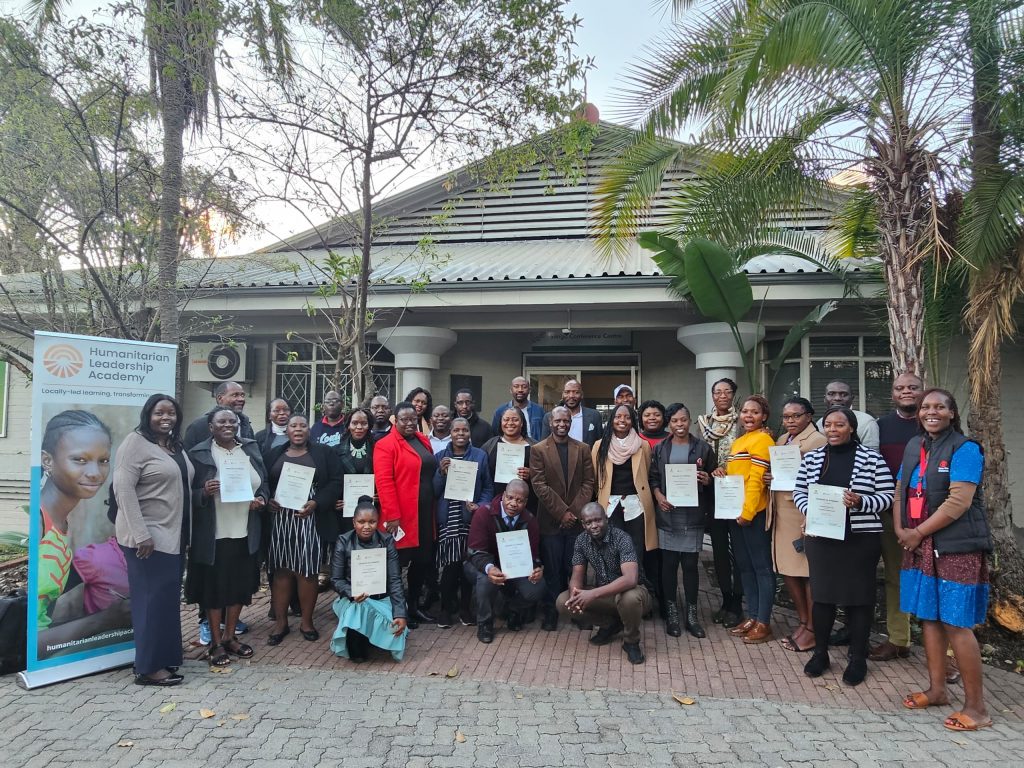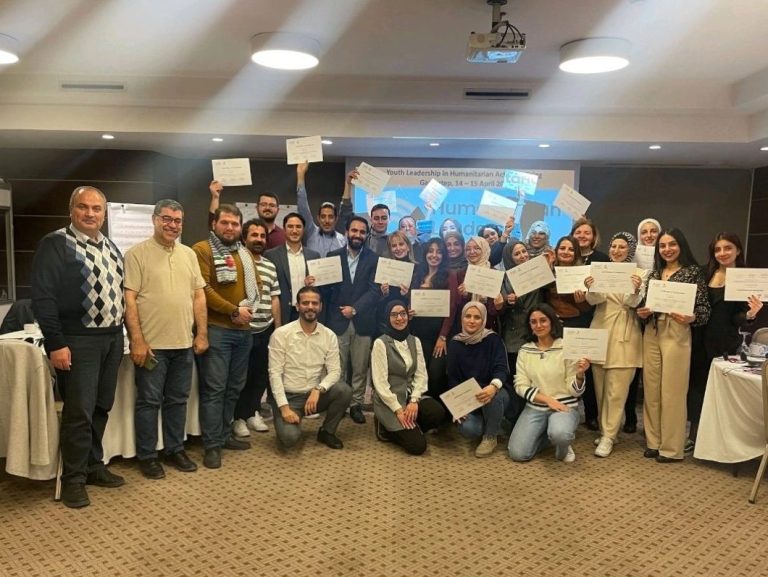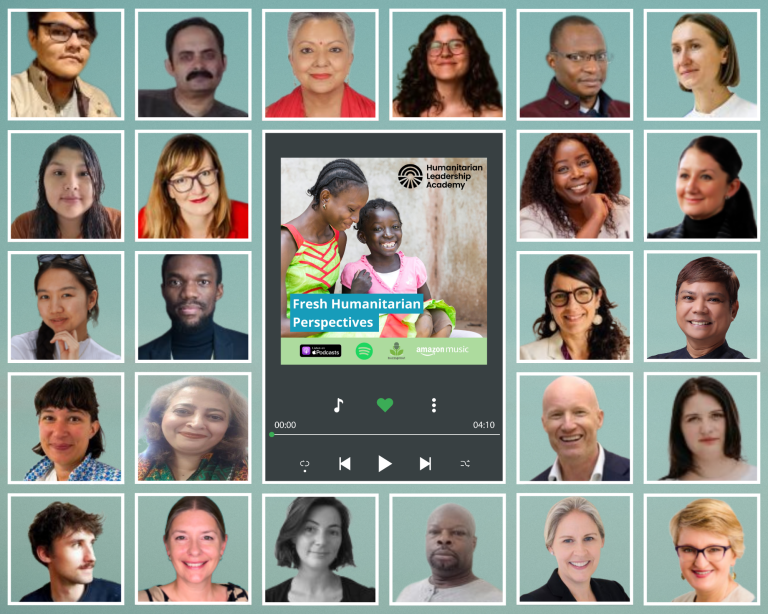Save the Children Zimbabwe Country Office collaborated with the Humanitarian Leadership Academy East and Southern Africa (ESA) region to offer a Humanitarian Action Training (HAT) bringing together the country office team, Akwande Tuvule development hub partners and government officials.
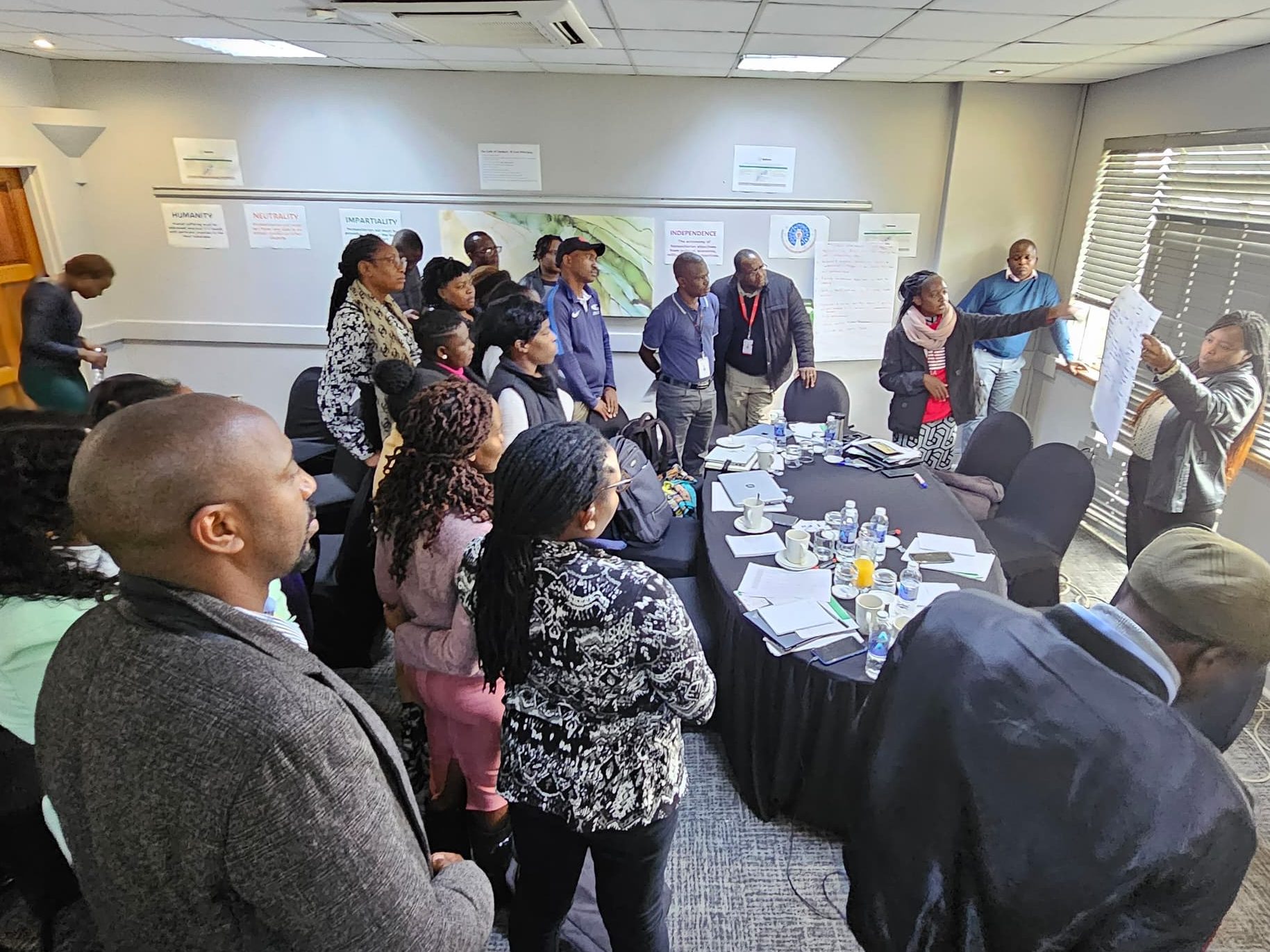
The training follows a recent Save the Children International member visit to Zimbabwe where Janet Nyaoro, HLA Lead for ESA pledged on behalf of HLA to support the showcased development hub. Janet said: “This is an exciting initiative led by the Zimbabwe Country Office. As we engage in discussions and training on localisation, it is important that we lead by example. We must actively support local initiatives such as Akwande-Tuvule Hub by offering the necessary technical and financial assistance… Together, we can build resilient communities and empower local leaders.”
The 4-day residential training brought together 30 participants (mostly comprised of women) and four facilitators from the HLA. Participants went through a rapid assessment to gauge their knowledge of essential topics in humanitarian action; after which they gained theoretical knowledge then practical skills through the disaster response simulations.
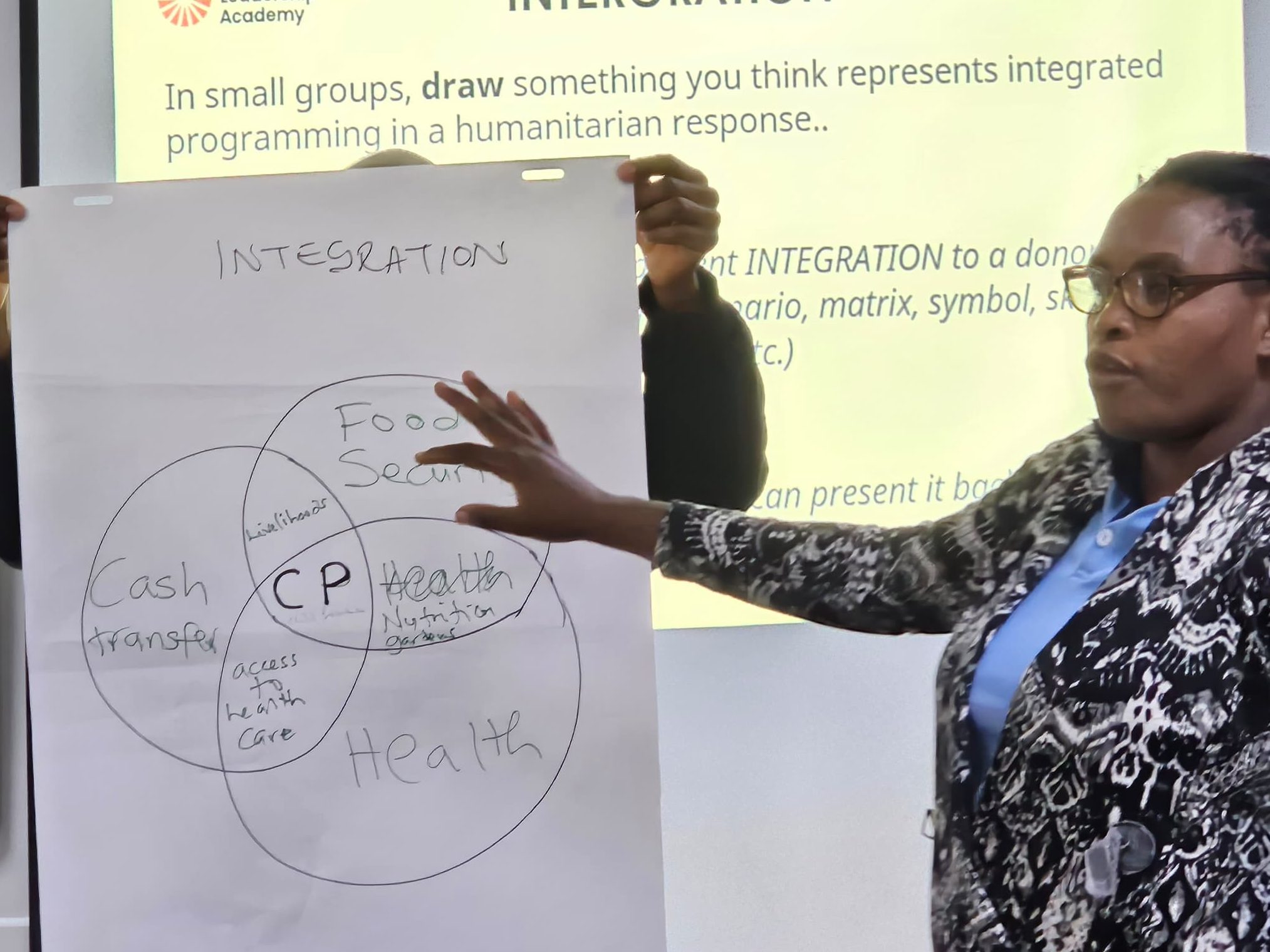
The training covered humanitarian standards and principles, leadership coordination and equitable partnerships, accountability to affected populations, conflict sensitivity, risk analysis, wellbeing and more.
At the end of the training, after being able to put learning into action through the simulations, participants were able to develop effective emergency response plans to keep children and communities safe during crises.
Memory Mlahanga, who participated in the training said:
“The presentations were on point and relevant to the process. I understood the main concepts and I feel with more reading materials and shared presentations, and I will continuously refer and become effective in Humanitarian Response Program. The simulation exercise was a testament to gained knowledge and skills. Because the training had a positive impact on my work, I have gained a lot of confidence in humanitarian action and response.”
